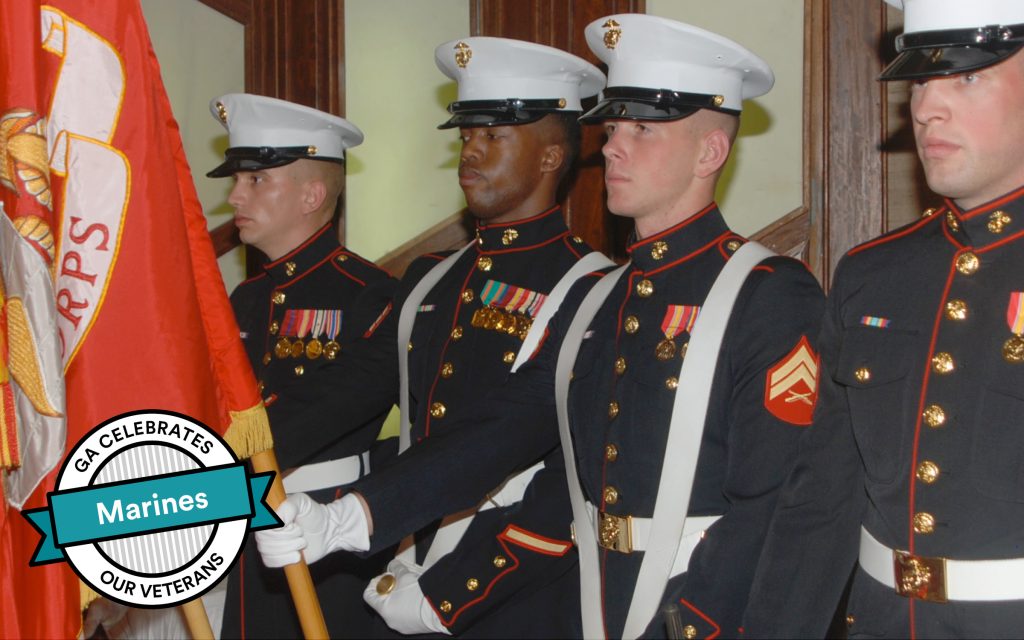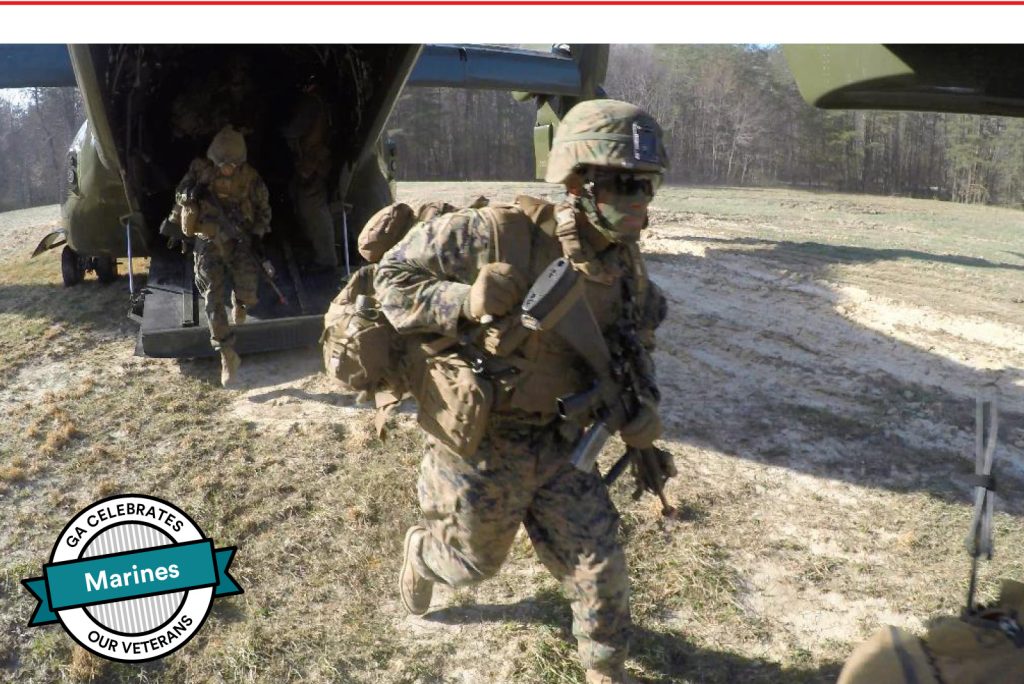
While stationed in Okinawa, Japan, in 2008, I wouldn’t have guessed that my time in the Marine Corps would have prepared me for a future in coding. At the time, the 30 Marines in my platoon had access to just one shared computer. It served only two functions: completing online training requirements, and looking up one’s online military record. I never suspected that nine years later I would be designing and building websites and applications in an intensive software engineering course, General Assembly’s Web Development Immersive, now called Software Engineering Immersive (SEI) course.
My path toward coding was a winding one. As a Marine on active duty, I was stationed in Japan, Kenya, Sudan, Italy, and Pakistan. Later, after transferring to the Marine Corps Reserve, I pursued a bachelor’s degree in international affairs from George Washington University. While studying at GW, I worked at the nonprofit Veterans Campaign, where I was tasked with helping to rebrand the organization. Though I had little technical experience, I created an entirely new web presence for the organization and migrated its old content to the new website.
It was fairly basic stuff, drawing less on know-how and more on trial and error with Squarespace tools. But it was my first real experience with software engineering — and I was hooked. No matter how many all-nighters I pulled to get the site finished, I kept finding myself waking up eager to build the next round of changes.
Despite that experience, I didn’t think of myself as a coder or web developer. I was on the path to an international affairs degree and had a career plan in place. Software engineering was not part of the picture. After graduating, I spent the next year and a half on active duty and in training, completing all the requirements to become a Marine Officer. In November 2016, I commissioned as a Second Lieutenant in the Marine Corps Reserve, but I knew I still wasn’t doing the type of work that would take me back to those enjoyable days working at Veterans Campaign.
Years prior, a friend had mentioned making a complete career change by taking classes through General Assembly. He had been a civil engineer with no coding experience and after completing the first WDI course offered by General Assembly in Washington, D.C., he was able to land a job as a web developer, a position he still has and enjoys today. I, too, would have to make a drastic career change if I wanted to be a web developer and I decided it was time to take the plunge.
The full-time Web Development Immersive, now called Software Engineering Immersive (SEI), course wasn’t easy, and the lessons I learned were a far cry from the simple tasks I did on that old computer in Japan. The initial learning curve was steep when it came to concepts like branches on Git, or merge conflicts on GitHub — but using them daily throughout the course forced us to become more comfortable. As each day passed, I realized just how my military training had prepared me for the training I needed to launch a new career in the tech economy.
Here are some of the most valuable lessons that helped me thrive in coding.
Make decisions with your family — your career change affects them, too.
Prior to starting at GA, I had several long talks with my wife about expectations during the three-month course. We discussed the time commitment, social expectations, and financial burden on our family. These are similar conversations servicemembers have with their families before leaving on new assignments. I was able to focus on excelling in the course only because we made the decision for me to enroll together.
Show up as if you don’t have a choice.
The program has a singular focus on equipping you with the skills required to land a tech job — and to adapt over time, as in-demand skills evolve. In many ways, it was similar to basic training. Like the military, success requires long hours and, at times, little sleep. It demands a focus on the mission at hand to minimize distractions.
Not having the best attendance record in high school meant I missed out on many learning opportunities. However, serving in the military drilled into me the importance of force readiness through diligent training; in the Marine Corps, attendance for training courses was never optional. I approached software engineering the same way, and I could see how my attendance in each class contributed to my readiness to perform the duties of a web developer after completing the course.

Leverage your team members to accomplish a common goal.
Like the military, WDI was also team-oriented. We would often work on projects in teams or squads, working alongside students from different backgrounds, all focused on completing the same goal.
In 2012, I was stationed at the U.S. Embassy in Islamabad, Pakistan, as a Marine security guard. Our readiness for any situation — including those in which we had to ensure employee safety in the face of threats — depended on every Marine knowing their responsibility, the other team members’ responsibilities, and what the end goal looked like. This framework allowed for flexibility during execution because it increased awareness of the larger operational picture.
At GA, I applied the same framework to our group projects by ensuring each team member understood their responsibility of writing code and how their piece of the project was instrumental to the end goal in relation to the other team members’ contributions. This allowed us to be flexible in our path to the end goal because we could support another member by writing code for their piece of the project while they worked through a difficult portion of code.
Learn from other cultures — it breaks down barriers and leads to better communication.
In the military, we work on teams with diverse groups of people from across the U.S., and I was pleasantly surprised with the diversity of my class at GA. Though I was older than most in the program and was the only veteran — a distinction I was used to from my time in college — my colleagues were an interesting group from all over the world.
I coded alongside people from countries where I had once been stationed. As it turns out, “unit cohesion” matters in tech as much as the military. All of my exposure to other cultures, both foreign and domestic, while in the military has helped me work through cultural and language barriers and leverage different personalities and skill sets to advance the mission.
In the months after completing the program I had numerous technical recruiters reach out with opportunities to put my coding expertise to good use. Thanks to my time in the Marines and the surprising way it prepared me to train for a new path in civilian life, I had the confidence and technical skills to enter into a career that I find just as rewarding as my time in the military.
***
General Assembly offers full-time, part-time, and short-form programs in web development, data science and analysis, user experience design, digital marketing, product management, and more at our global campuses and online. GA gives a 10% discount on its programs to veterans, and veterans are eligible to use their post-9/11 G.I. Bill® benefit for Immersive training programs in New York and Washington, D.C., with other locations to follow.
***
A version of this story first appeared on Military Advanced Education & Transition.